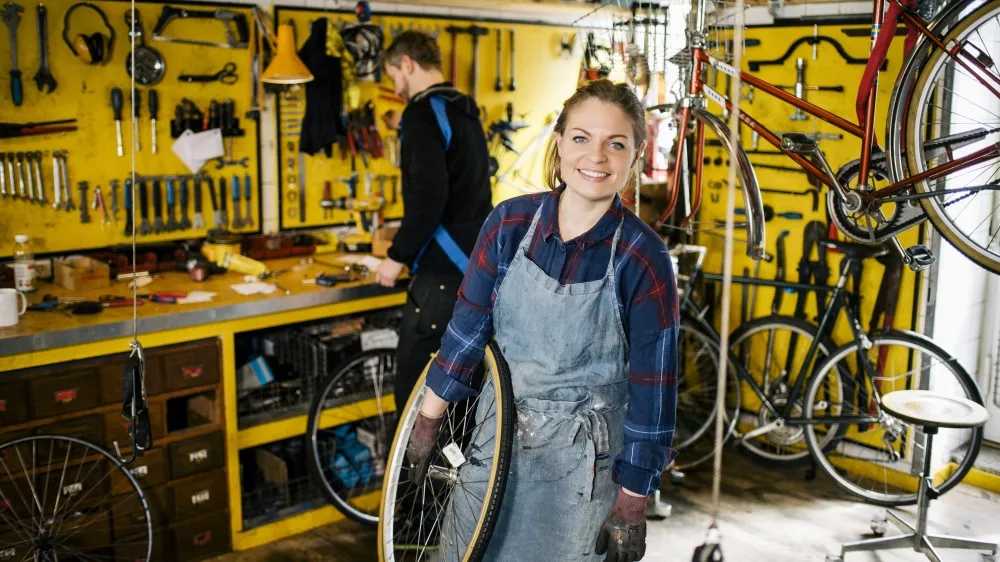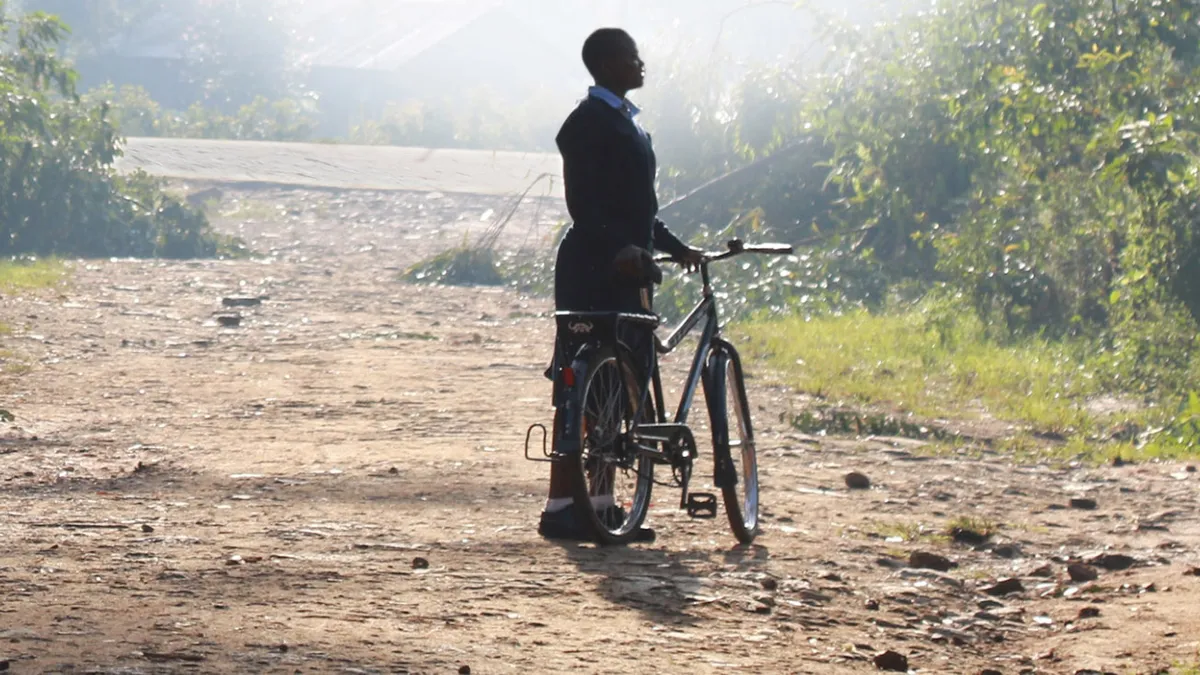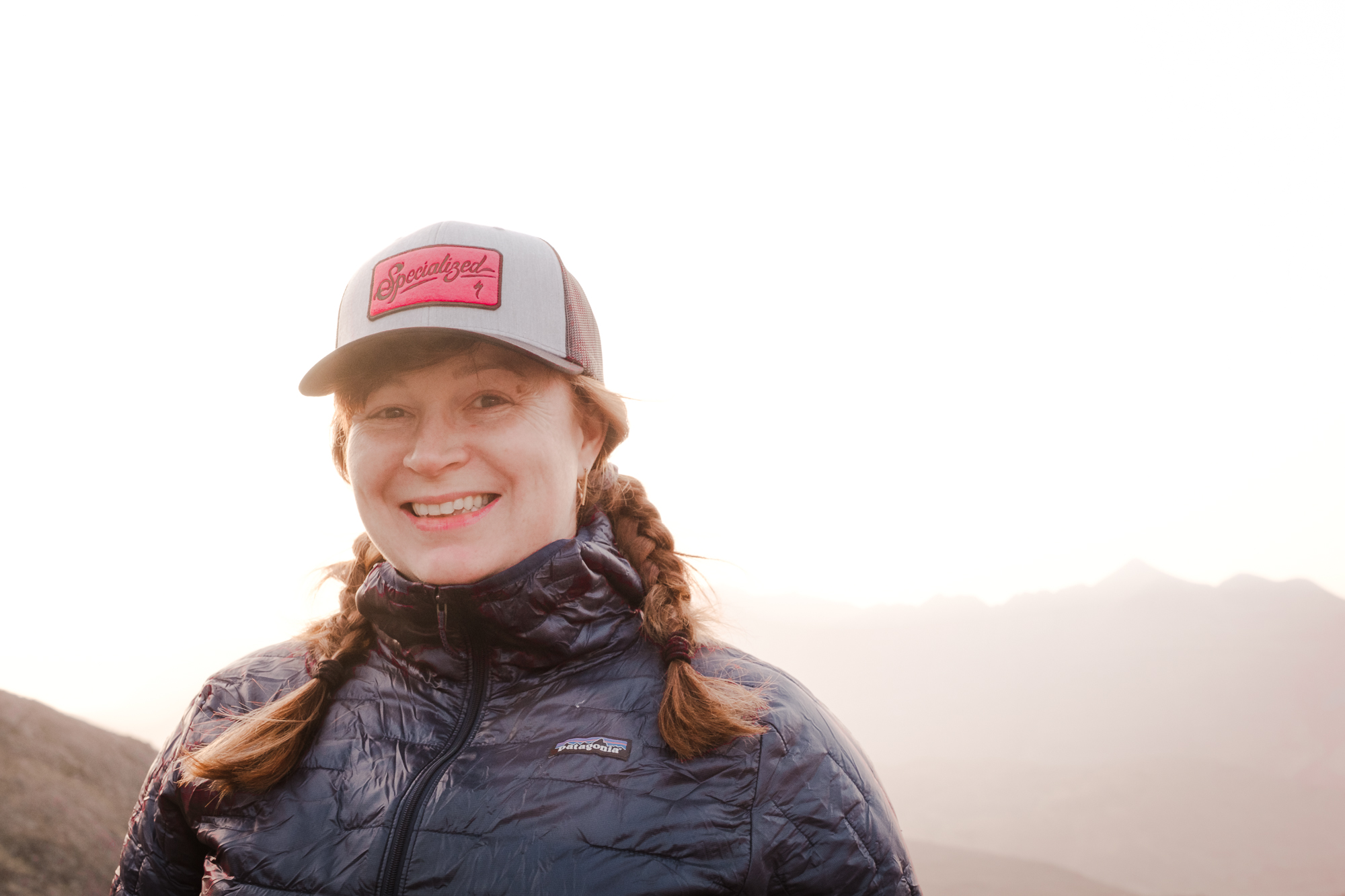You love cycling. We love cycling. A simple bike ride can blow the cobwebs off a bad day, lift your spirits when you're feeling down, bring you a whole crop of new like-minded friends and generally make the world feel like a brighter, better place.
- World Bicycle Relief is changing lives with pedal power
- What's the best bike for cycle commuting?
- Help give bicycles to 1,200 people who'd really benefit
People get into cycling for all sorts of reasons, too. Some purely for transport, some find that it helps them deal with depression or tragedy, some love the thrill and excitement of racing, and some are drawn to long, contemplative solo miles. One thing, however, unites us all whether we like our rubber skinny, knobbly, fat or thin, and that's bikes.
It's not a massive leap of the imagination to think that if bicycles can make you fitter, happier and able to get around more quickly, it can do the same for other people.
And people have not only made this connection, but acted on it, creating groups, organisations and charities that harness the bicycle and all the things associated with it to make the world just a little bit better: skills, community, freedom.
Here are a just a few examples I know about and some that have been suggested by BikeRadar readers. If you've got more, let us know in the comments at the end of the article.
Bicycle power around the world
Bicycles are an amazingly efficient way of getting from A to B, and also for transporting goods — as anyone who cycles with panniers or uses a cargo bike will attest. They also require much less maintenance than cars, run on human power rather than hydrocarbons, and if built well are durable and long lasting. Little wonder then that they are a tool that that can have a positive effect on people around the world.
Another charitable organisation changing lives with bicycles is Wheels For Life. Set up by legendary mountain biker Hans 'no way' Rey and his wife Carmen
World Bicycle Relief, for example, is a charity that sends specially designed Buffalo Bikes to remote communities in South America, Africa and Indonesia. Originally set up in the wake of the Indian Ocean Tsunami, it now gives bikes to communities to make school kids' journeys safer and quicker, allow medical staff to visit more patients more quickly, and give people the ability to take more goods to market.
Re-cycle, a charity based in the UK, takes another approach. It takes old bicycles that are often abandoned or unused in the UK, fixes them up and sends them to communities in Africa. In its words, unloved bikes here become "simple, affordable transport, [which] generates income opportunities in developing countries, as well as saving lots of time and back-breaking work."
Another charitable organisation changing lives with bicycles is Wheels For Life. Set up by legendary mountain biker Hans 'no way' Rey and his wife Carmen, it provides bikes to various individuals and groups around the world, including Guatemala, Rwanda, Thailand, Madagascar and Nepal.
Closer to home, The Bike Project works to provide bikes and the opportunities to refugees and asylum seekers in London, a city known for its expensive public transport system and high cost of living. Access to a bicycle, and sessions where female refugees can learn to ride, mean that these people can more easily access resources that could help them, such as charities, legal support, education and more.
Local pedal power
There are also marginalised groups in the UK, US and Australia who benefit from access to the cheap form of transport that a bike provides. There are numerous community and volunteer run groups such as the Bristol Bike Project, based in the South West of England, which fixes up old bikes and then sells them at an affordable price. Providing refurbished bikes is only part of its work with the actual maintenance and repair process offering an opportunity to engage and connect with people. Workshops for the young, women or people facing isolation mean an opportunity to experience the social side of cycling while also learning a rewarding and useful skill.
In fact, the skill of bike maintenance can be turned into a career, which can mean new opportunities and the chance to build a better future. Happydays Cycles in Yorkshire, UK, for example, is a social enterprise that give homeless people the opportunity to gain bike mechanic skills. "We run a workshop with volunteers and ex-homeless/vulnerable people," Happydays states, "training them in bike maintenance, giving them work opportunities and the chance to get back into the working environment." Incidentally, it also runs what it calls a 'bike library', which is a repository of bikes for use by the local community.
Getting the next generation on bikes can only be a good thing, and there are several organisations around the world, big and small, who are looking to do this
Once you have a bike, being able to fix it means you're self reliant and it's considerably cheaper than dropping in to a shop to get a repair. However, all those specialist tools aren't cheap, which is why you'll see increasing numbers of community run bike shops — such as The New Orleans Community Bike Project in the US and The London Bike Kitchen in the UK. As well as providing open access to workshop space and tools, for a nominal fee, these shops also run maintenance and repair courses, events and talks, making them a community hub as well as a place to fix bikes.
Rider support
Supporting women who want to progress in the world of competitive road racing is The Racing Chance Foundation's goal. A UK-based charity, it seeks to provide training and racing support opportunities for women from novice to elite level; support elite-level riders who aren't part of a team or group; and support women who wish to become coaches or officials — be it with advice, opportunity or financial assistance.
When it comes to sheer passion for cycling, to the extent that riders are wiling to challenge accepted gender norms and even put themselves at risk, it's hard to find a more inspirational group than the Afghan Women's cycling team. To be part of a national women's team in a country where women cycling is viewed negatively, to say the least, is testament to the strength and determination of the women involved.
Kids on bikes
Getting the next generation on bikes can only be a good thing, and there are several organisations around the world, big and small, who are looking to do this. In the US, Vermont-based organisation Little Bellas runs weekly rides and regular camps where girls aged seven to 16 are taught mountain bike skills by female mentors.
It says that it "aims to create a community that will empower girls through sport, emphasise the importance of goal-setting, promote healthy lifestyles and recognise the positive effects of strong female bonds."
CYCLE Kids, also based in the US, is "committed to strengthening the emotional and physical health of children by giving them the skills to lead active and healthy lifestyles, using the fun and practical skill of riding a bike" — which is something I'm sure we can all get behind! Kids roaming free on bicycles shouldn't just be an idyllic view of the past, it should be our ambition for the future!
The great thing is, I know for sure that this list isn't exhaustive. In fact, I've barely scratched the surface of people, groups, organisations and charities who are using bikes and cycling to have a positive impact on the world and I'd love to know about anymore from you in the comments below.


